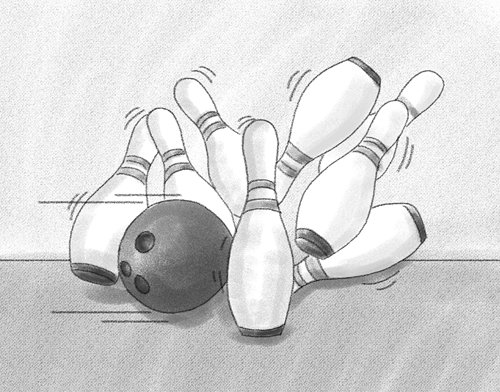HOME >> BUSINESS
Vote-hungry attitude toward trade war with China can be US’ Achilles’ heel
By Yi Xianrong Source:Global Times Published: 2019/7/18 21:38:41

Illustration: Xia Qing/GT
The US-China trade war has lasted more than a year, only to see both sides take casualties. According to data released by China's General Administration of Customs last week, during the first half of 2019, China's exports to the US fell by 8.1 percent year-on-year to $199.4 billion, while imports plunged 29.9 percent to $58.92 billion, resulting in a trade surplus of $140.48 billion. In other words, while the first half saw Chinese exports to the US decline, though not by too much, US exports to China collapsed quite sharply. In particular, US exports of agricultural products to China slumped over the same period.
Although the escalation of the US-China trade war has had an impact on trade between the two countries, from the wider landscape of China's total foreign trade, trade remains one of the bright spots for the Chinese economy in the first half of this year. Exports of electromechanical products, which accounted for nearly 60 percent of China's total exports, climbed by 5.3 percent during the first six months of 2019. In particular, exports of some electromechanical products and equipment manufacturing products with higher added values maintained strong momentum for growth. For instance, exports of electric-manned vehicles soared 91.9 percent, with exports of solar cells, metal machining tools, and wind turbines jumping by 57.1 percent, 23.8 percent, and 190 percent, respectively. Imports of consumer goods went up remarkably, with seafood and cosmetics sectors recording growth of 39.1 percent and 46.5 percent, respectively, in the first half. That being said, against the backdrop of a huge global market, the intensified US-China trade war has affected China's foreign trade in the first half, but the impact is not as big as expected. I believe the Chinese government will be able to extricate itself from the difficulties in the trade war.
It was at the G20 meeting in Japan at the end of June that top leaders of the two countries agreed to a truce and to restart trade talks. After a telephone conversation, US Trade Representative Robert Lighthizer and the US Treasury Secretary will soon travel to Beijing for a new round of talks. The US-China trade war has entered a "quiet period," but there will still be many obstacles and uncertainties facing their trade negotiations, and the root of such uncertainty lies in US President Donald Trump.
During Trump's business career, he over-calculated everything to maximize personal interests, and was especially good at exerting extreme pressure on his counterparties. If someone were not familiar with Trump's personal style, they could probably be bluffed and taken advantage of. As the saying goes, a leopard can't change its spots. After Trump became US President, he showed his true colors to the world. The way he took a swing at China by threatening sweeping tariffs is one of the best examples to show his extreme-pressure modus operandi. Trump will only call this off once he believes that the tariff tool will be unfavorable to the US.
In this sense, Trump's weakness in the US-China trade war lies in how US voters feel about the trade dispute, especially his hardcore supporters. Trump has made it clear that he will run for President in 2020. So by the end of the US presidential election in November 2020, his main purpose will be to get as many votes as possible. If an escalated US-China trade war is favorable for winning more votes, then the trade war will definitely become more and more fierce. But if the trade war has an unfavorable impact on Trump's votes, then he will immediately call it off or at least suspend the trade war, disregarding how big the losses are. The personal gain in the election is Trump's weakness in the current US-China trade war.
Then, what could China do with this weakness in the negotiations? First, the Chinese side could relax its pace, as it is not in a hurry to conclude the deal. It is not a bad thing for trade talks to enter a "quiet period." Second, we need to truly understand the conditions of American people, including but not limited to the impact of the trade war on US residents and the US economy. This information should not be based on hearsay alone. We also need to know what American voters are thinking about Trump, and understand them not just from the perspective of Chinese people. Only by truly understanding the public opinion of American people will China be able to understand Trump's weakness. Third, we need to recognize and understand China's own problems and shortcomings through the trade talks.
It should be seen as an opportunity for us to reposition China's market economy and to step up China's reform and opening-up, so as to develop and strengthen our own economy. Reform and opening-up is key for the Chinese economy to stand in the world arena.
The author is a professor with the School of Economics at Qingdao University. bizopinion@globaltimes.com.cn
Posted in: EXPERT ASSESSMENT